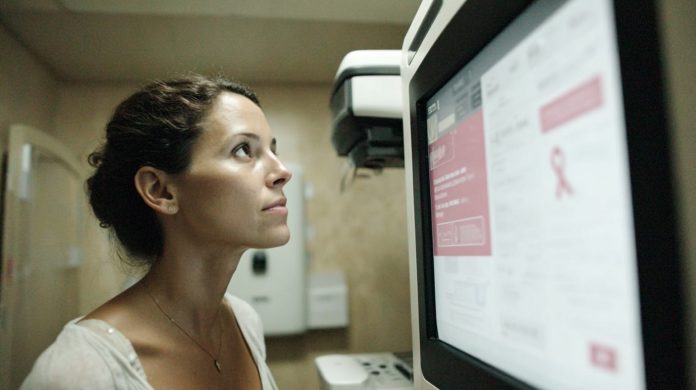Let’s talk about the girls. The twins. The bosom buddies. Whatever you call them, your breasts are not just a part of you—they’re a part of your story. And if there’s one chapter we want to keep light, empowering, and drama-free, it’s the one where we learn why early detection of breast cancer is essential and why regular checkups are an act of self-love.
First, a reality check (with a side of hope). Breast cancer is one of the most common cancers affecting women, but thanks to early detection, so many women are surviving and thriving. The earlier it’s found, the better your chances of simpler treatment, less invasive options, and a healthy future. Early detection isn’t about living in fear—it’s about living informed. It’s the difference between feeling helpless and feeling powerful. And we’re all about power.
Why early detection matters more than your favourite moisturiser.
- Smaller is simpler: When breast cancer is caught early, it’s often smaller and hasn’t spread. That means treatments can be more targeted and less intense. Think lumpectomy instead of full mastectomy, shorter courses of treatment, and fewer side effects.
- Better outcomes: Early-stage breast cancer has significantly higher survival rates. We don’t toss those statistics around to scare you, but to point to the hope that comes with taking action.
- Your life, uninterrupted: Early detection may mean less impact on your work, family, finances, and mental space. More time for the things you love—like Saturday morning markets, and that perfectly brewed cup you swear tastes better when someone else makes it.
The checkups you actually need (and when).
Self-awareness monthly: Not a rigid checklist, more like “know your normal.” Your breasts change throughout your menstrual cycle, so familiarise yourself with how they typically look and feel. Do a quick self-check once a month. In the shower, before bed, or with your favourite series—keep it consistent. Look for changes such as lumps, thickening, puckering, dimpling, discharge, or alterations to the skin or nipple. If something feels off, don’t dismiss your concerns. Call your doctor. Read PINKTOBER – Time to master Breast Self-Examination to get self-check guidance.
- Clinical breast exam every 1–3 years in your 20s and 30s: A healthcare professional will do a proper exam—quick, respectful, and over before your WhatsApp voice note finishes playing.
- Mammograms from around age 40 to 50, then annually or as advised: This can vary depending on your personal risk and local guidelines, but generally, mammograms become part of your routine from your 40s. If you have a family history or other risk factors, you may need to start earlier or add an ultrasound or MRI. Chat with your GP or gynaecologist and create a plan that suits you.
“But I’m young and healthy” (and other myths we lovingly bust).
Myth: If there’s no family history, I’m safe. Fact: Most breast cancers occur in women with no family history. Family history raises risk, but it’s not the whole picture.
Myth: If it doesn’t hurt, it’s not serious. Fact: Most breast cancers aren’t painful. Pain isn’t the marker—changes are.
Myth: Mammograms are too sore. Fact: They can be uncomfortable, but it’s a quick process. Call it 10 seconds of squish for years of peace of mind. You’ve survived underwire bras; you’ll be okay.
Myth: I’ll wait and see. Fact: Delays can make treatment tougher. When in doubt, check it out.
Know your risk (because knowledge is not scary).
Your risk depends on factors such as age, personal and family history, genetics (including BRCA mutations), lifestyle, and reproductive history. You can’t change everything—ageing is a privilege, and so is your DNA—but you can know your risk and manage what you can:
- Move your body. Even brisk walks count.
- Keep an eye on alcohol intake. A glass of bubbly now and then? Lovely. Daily heavy pours? Maybe not.
- Nourish yourself: colourful plates, whole foods, balance over restriction.
- Don’t smoke. Your future self will send you flowers.
- Know your contraceptive and hormone therapy options—talk to your doctor about benefits and risks for you.
How to actually book and go (because admin is half the battle).
- Put it in your calendar. Set a yearly reminder for your mammogram month and a monthly reminder for your self-check. Treat it like a non-negotiable meeting with your future self.
- Ask your medical aid what’s covered. Many plans offer screening benefits. If you’re paying cash, ask clinics about screening specials or community programmes.
- Make it a plan with a friend. Coffee after your appointment turns “ugh” into “us.”
- Wear a top that’s easy to remove and something cosy for after. Leave the complicated bodysuit at home.
- Take a deep breath. The staff do this every day; they’re on your team.
What to expect at a mammogram.
You’ll stand in front of the machine while each breast is gently but firmly compressed for a few seconds. It’s not spa-day-level comfortable, but it’s quick. A trained radiographer will guide you, and they’ve seen it all. If you have dense breast tissue, your doctor might recommend an ultrasound as well—no biggie, just another tool in the toolkit.
When to call your doctor sooner than your next routine check?
- You feel a new lump or thickening that doesn’t go away after your next cycle.
- You notice dimpling, puckering, redness, scaly skin, or a rash on the breast or nipple.
- There’s nipple discharge (especially bloody or clear) not linked to breastfeeding.
- Your nipple turns inward or changes shape.
- Swelling in part of the breast, or pain that feels different and persistent.
Trust your gut. You know your body best.
The mental game: courage looks like making the call.
It’s normal to feel nervous. Many of us avoid checkups because we’re scared of what we might find. But early detection doesn’t create problems—it reveals them in time to fix them. And there’s so much support out there: from healthcare teams who speak human, to communities of women who’ve been there and are cheering for you.
Your gentle nudge to start now.
- Pick a day each month for your self-check. Put a small sticker on your mirror or set a recurring reminder.
- If you’re due for a clinical exam or mammogram, book it today. Not next week. Today.
- Tell a friend you’re doing it and ask her to join you. Accountability, but make it feminine.
A note for our resilient South African hearts.
We’re resilient. We’ve navigated load shedding schedules and budget stretches; we can absolutely navigate our health with the same grit and grace. Whether you’re in sneakers or heels, juggling deadlines or dinner, you deserve accessible, compassionate care—and you deserve to prioritise yourself without apology.
Here’s the bottom line: early detection is not a scary story; it’s a safety net. Checking your breasts regularly and keeping up with screenings is one of the kindest things you can do for your future. Book the appointment. Do the self-check. Wear the cute bra if it helps. Your body is not a problem to fix—it’s a home to protect. And you? You’re worth the effort, every time.
LotsOfLove, SL




